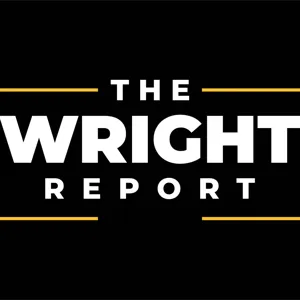Podcast Summary
Guyana's Oil Boom Amid Climate Change: Guyana balances economic development from oil production with addressing climate change impacts, a common challenge for many countries.
Guyana, a country on the Atlantic coast of South America, faces the complex challenge of dealing with the devastating effects of climate change while simultaneously capitalizing on the discovery of vast oil reserves off its coast. Exxon's plans to increase offshore drilling in Guyana come at a time when the world is emphasizing the need to transition away from fossil fuels. Guyana, which has experienced the devastating impacts of climate change firsthand, is banking on oil production to bring in much-needed revenue. Reporters like Camila Domingo have highlighted this tension, bringing attention to the complications of balancing economic development with the urgent need to address climate change. This situation is not unique to Guyana, as many countries grapple with similar dilemmas. The BBC, an NPR sponsor, emphasizes the importance of sharing stories that make us think and broaden our perspectives, allowing us to better understand the complexities of the world around us.
Guyana's Dilemma: Climate Advocacy vs. Oil Revenue: Guyana, rich in rainforests and facing sea level rise, debates whether to give up oil revenue despite climate concerns and broken promises from richer countries.
Guyana, a country with significant rainforests that absorb more greenhouse gases than they release, is facing a dilemma as it deals with the rapid rise in sea levels and the discovery of oil off its coast. While Guyana's Vice President, Bart Jagdio, is a climate advocate, he questions why Guyana should give up its oil revenue when other countries continue to produce and profit from oil. However, the history of broken promises from richer countries regarding climate change financing raises concerns about the potential negative consequences of relying on oil revenue, including the resource curse and corruption. Despite these challenges, Jagdio aims to extract billions of dollars from the oil industry while it lasts and use it to develop Guyana sustainably.
Guyana's Dilemma: Balancing Climate Concerns with Economic Needs in Oil Production: Guyana, once known for its green initiatives, now faces a dilemma as it joins the oil industry amidst climate change impacts. Environmental concerns clash with financial needs, and the country must adapt while considering potential oil revenues.
Guyana, a country once recognized for its carbon-absorbing rainforests and groundbreaking green initiatives, now faces a complex dilemma as it joins the ranks of oil producers. Climate change is already causing significant damage, with rising seas, shifting weather patterns, and devastating floods. While some, including environmental activists, call for an end to drilling in the name of climate action, others see it as a necessary means to secure much-needed financial resources. Annette Arjune Martins, a conservationist and pilot, expresses this ambivalence, criticizing the oil deal but acknowledging the financial need. Meanwhile, the impacts of climate change are evident in the daily lives of Guyanese people, from flooded farms and homes to dead trees and livestock. The country now grapples with the steep costs of adapting to these changes while also considering the potential financial benefits of oil production. This complex situation highlights the challenges faced by developing countries in balancing environmental concerns with economic needs in the context of climate change.
Developing countries face financial challenges in combating climate change: Developing countries struggle to financially benefit from climate action due to high-tech solutions monopolized by wealthy countries. Forest preservation carbon credits offer limited financial gain compared to oil production.
Developing countries like Guyana face significant challenges in benefiting financially from efforts to combat climate change, while wealthy countries continue to invest heavily in high-tech solutions. Guyana's experience with carbon credits from forest preservation pales in comparison to the profits reaped from oil production. This pattern is not unique to Guyana, as other developing countries like Suriname and Mozambique have also discovered significant fossil fuel resources. The Guyanese government is unsure how long they will continue drilling for oil, as the future of climate action remains uncertain. Vice President Ali expects oil production to last for a long time due to the low cost of production and the continued global demand for oil. Despite the potential negative impact on the environment and future generations, the financial incentives for countries like Guyana to prioritize short-term profits over long-term climate action are significant.
Guyana's Oil Industry: Economic Gains vs Environmental Concerns: Guyana's oil industry brings significant financial gains but raises concerns over future value due to global shift towards reducing oil use and climate change impacts on farmers.
Guyana is at the center of a significant global debate over the future of the fossil fuel industry and the environment. On one hand, the country is seeing substantial financial gains from oil production, with expectations of over $1 billion in revenue in 2024. On the other hand, there are concerns that these oil resources could become "stranded assets" as the world moves towards reducing oil use due to climate change. The tension is personal for many, including the interviewer who acknowledges her carbon footprint in traveling to Guyana. The country's farmers are already feeling the impacts of climate change, adding to the complexity of the issue. Guyana currently produces around 645,000 barrels of oil per day and expects to earn $1 billion from oil exports and royalties in 2024. In contrast, they anticipate selling $210 million in carbon credits this year. This debate highlights the challenges of balancing economic gains with environmental concerns and the potential long-term consequences of our current reliance on fossil fuels.






